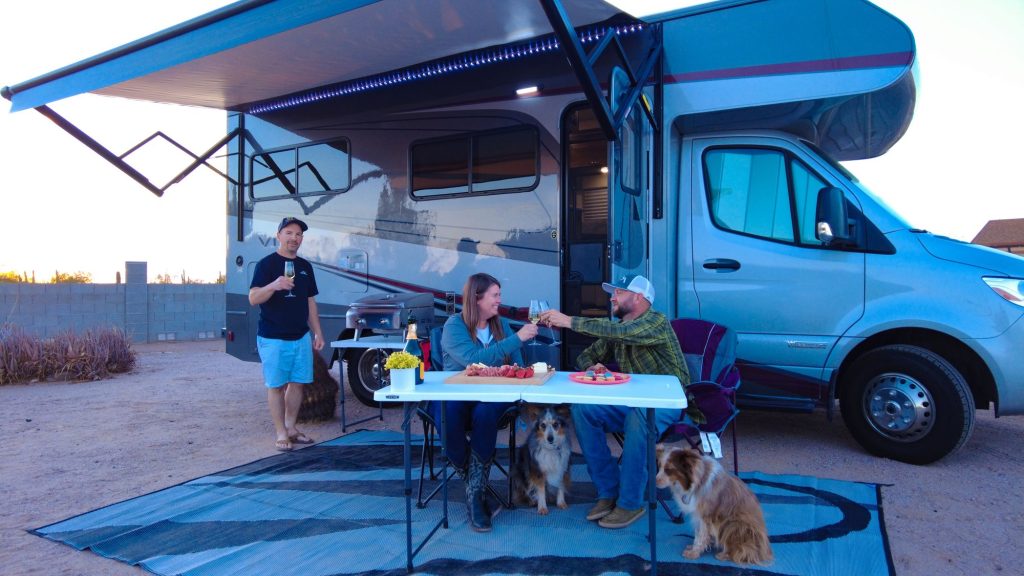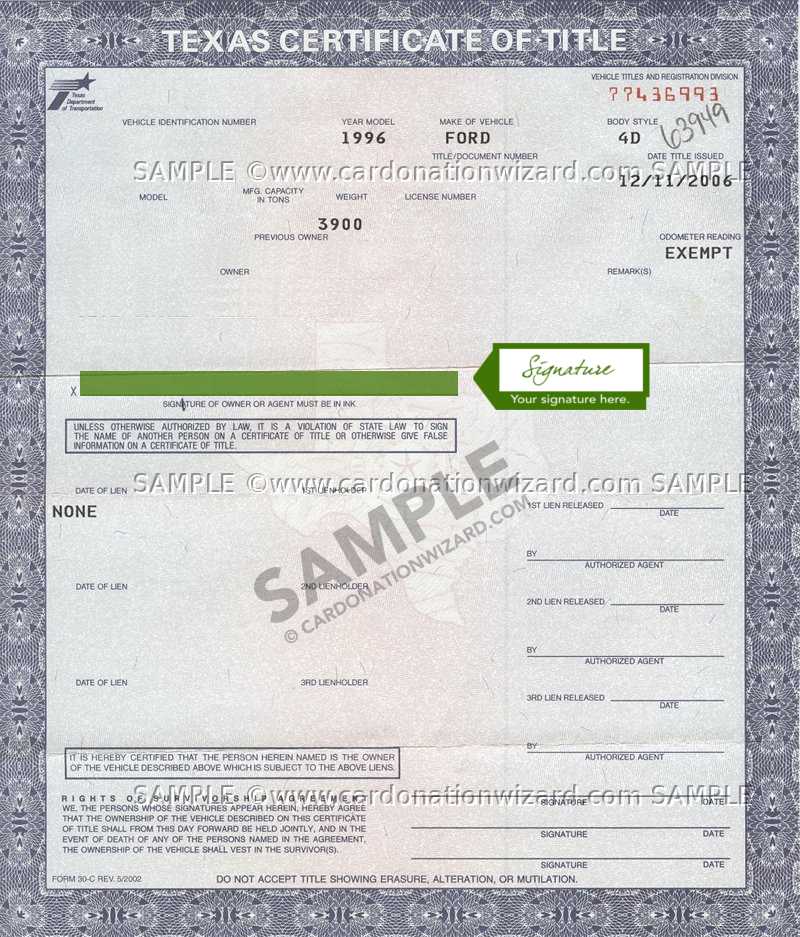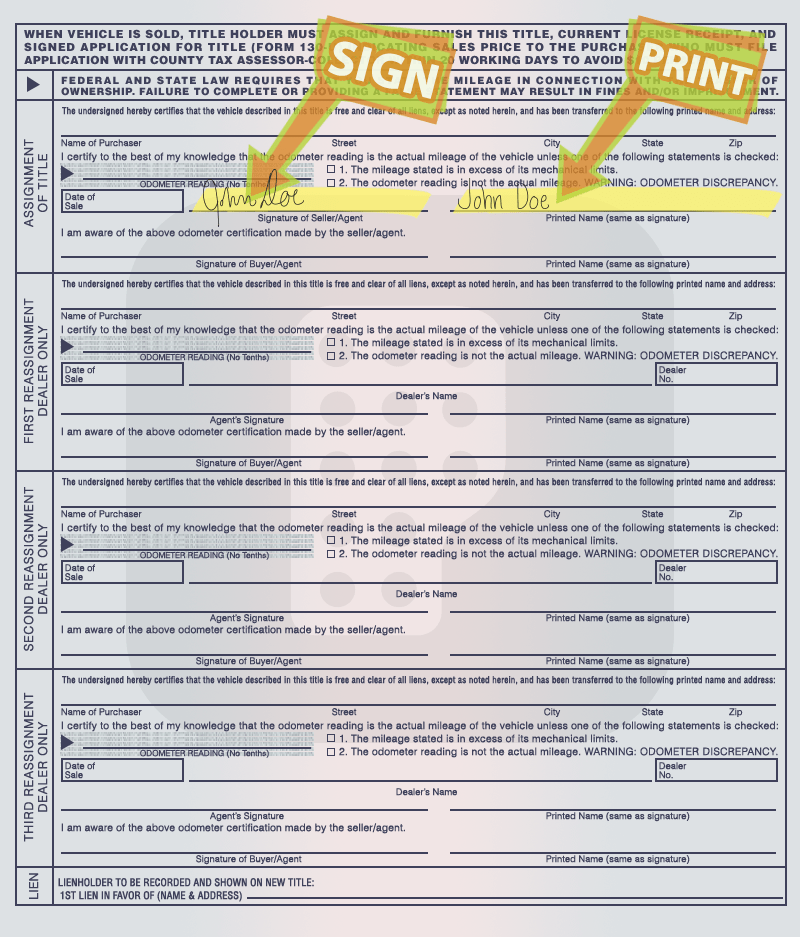
Selling your RV can be an exciting process, but it’s important to be aware of any legal requirements or regulations that may apply. These requirements can vary state-by-state and sometimes, even by the county. Here are some key considerations to keep in mind:
Title Transfer
When selling your RV, you’ll need to transfer the title to the new owner. This process typically involves signing the title by both parties in the designated signature spots. In addition, the new buyer will need to sign the application for title/registration transfer. Some jurisdictions require the signatures to be notarized. Any errors made when filling out or signing a title will may require an additional document to be filled out to correct the errors. Be sure to check the specific requirements in your jurisdiction, as they may vary.
Here is a sample of a Texas title. On the front, the seller needs to sign by the “X”. On the back, both the buyer and seller need to fill out the information in the “Assignment of title” section and then sign and date.


Vehicle Inspection and Condition
Depending on where you live, there may be regulations regarding the condition of the RV you’re selling. Some jurisdictions require a state vehicle inspection to ensure that the RV is safe and complies with certain standards. In general, it’s important to address any necessary repairs or maintenance before listing your RV for sale which will help increase the marketability and speed at which you can sell.
Disclosure of Information
As a seller, you have a responsibility to disclose any known issues or problems with the RV. Some of the most common issues are things such as old tires (tires older than 5 years should be replaced), roof condition (when was the last time it was resealed?), generator hours and condition, function of appliances such as the oven, stove, hot water heater, etc.. The seller should include providing accurate information about the vehicle’s history, previous accidents, or any damage that may affect its value or safety. Failing to disclose relevant information could lead to legal consequences.
Sales Contracts and Agreements
To protect both parties involved in the sale, it’s recommended to use a sales contract or agreement. This document outlines the terms and conditions of the sale, including the purchase price, payment method, and any warranties or guarantees. Some jurisdictions offer a purchase agreement template that you can find on the DMV’s website which will serve as a sales contract. This agreement will need to be presented to your local jurisdiction when filing paperwork after the sale. It’s advisable to consult with a legal professional to ensure that the contract is legally binding and covers all necessary aspects.
Tax and Insurance Considerations
Selling your RV may have tax implications, such as capital gains tax or sales tax. For example, in Texas the buyer incurs a sales tax of 6.25%. There may be some additional registration and title transfer fees depending on the buyer’s county. Additionally, you may need to notify your insurance provider of the sale or transfer of ownership.
Conclusion
Selling your RV can be a smooth process if you’re aware of the legal requirements and regulations that apply. By understanding the title transfer process, addressing the condition of the RV, disclosing relevant information, using a sales contract, and considering tax and insurance implications, you can ensure a successful and compliant sale. We recommend calling the DMV to ask where to find materials and guidelines around the process and regulations.
Remember, it’s always advisable to consult with legal and tax professionals for specific guidance based on your location and circumstances.
If you don’t have the time to sell, sign up your RV in RecNation’s consignment program where we handle it all for you. From cleaning, staging, marketing, and meeting with buyers, we take the hassle so you don’t have to.
If you are in need of professionally managed, secure, and safe RV parking, check out RecNation RV & Boat Storage.
